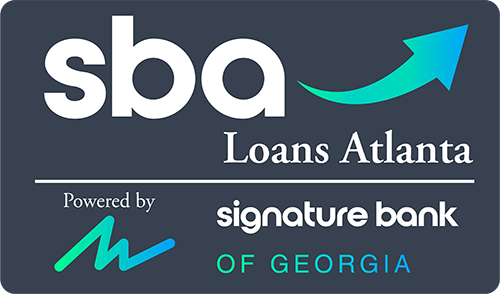Digitization is the future of many businesses. The finance industry, in particular, has embraced digital technology. Currently, 63.8% of people in the US use digital banking. Digital banking has become necessary following the rise of online transactions.
Digital banking allows automating all banking activities to provide a better customer experience. Here there is no manual intervention. Digital banking uses analytic tools, API (Application Programming Interface), and Artificial Intelligence.
The security of data and money concerns both individuals and businesses. The concern here would be the surge of cybercrime. Yet, digital banking has never been more secure.
Experts predict the net value will reach $30.1 billion by 2026. They have developed technology that protects your financial information from cyber attackers.
In this article, we mention groundbreaking technology used to secure digital banking. Also, we will discuss what you can do to ensure you always stay safe when banking online.
Read on for insights on what e-banking is.
What Is Electronic Banking
Electronic banking is conducting banking transactions using electronic means, such as the internet.
It can include activities such as transferring money between accounts, paying bills, and depositing checks.
There is a difference between digital and electronic banking. Digital banking software does all the banking processes. As for e-banking, you have to complete some of the steps on your own.
Generally, digital banking automates both front and back ends, while e-banking only automates the front end.
E-banking and digital banking entail similar activities like fund transfer, and bill payment. Also, they’re both done via mobile phones, tablets, and laptops. The only distinction is in how the system processes the back-end.
And for a small business digital banking can provide tremendous benefits. Here are some of the online banking conveniences:
- Instant money transfers for real-time payments
- Monitoring invoicing and receivables
- Funding validation and identity verification
- Instant bank statement generation
- Financial management and accounting
- Secure payment and fraud protection
- Instant business and personal loans
This Is Why Digital Banking Is Safe
Bankers have employed technological and lawful measures to safeguard your money. Here are some of the top measures banks take to protect your money.
The Federal Deposit Insurance Corporation (FDIC) Insurance
FDIC is a federal agency that ensures your money is safe in the bank in case of bank failures. Whether your bank is brick and mortar or online, you should always check if FDIC covers them.
Digital Banks Offer End to End Encryptions and Firewall Protection
End-to-end encryption is a program that ensures no third party can steal your information. The software converts the communication between you and the bank into code. Through this code, only you or your bank can access that information.
In a similar fashion, a firewall checks data entering or leaving a computer network. It then blocks unauthorized access.
Secure Socket Layer Encryption (SSL)
You may log in online to either fill out an application or register for services. It is a concern since you are providing your personal details. SSL encryption thus provides a secure connection with your browser.
Before using a website, confirm whether it has SSL encryption. To confirm, look for the lock icon in the lower right corner of the page. Then check it uses “https://” rather than “http://” at the beginning of the (Uniform Resource Locator) URL.
Automatic Log Out System
After a given time of inactivity, most online banking systems will close your account. It is a security measure to block unauthorized access.
SMS Alerts for All Account Activities
An SMS notification follows all banking transactions. It is a great way to keep track of activities in your account and to spot and report suspicious activities.
Multi-Phase Verification Measures
Multi-phase verification requires you to authenticate your identity using different methods. Think of Google’s two-step verification process.
When you log into your bank account online, the website can, for instance, ask you a security question. It’s possible the website will also ask for your password.
Likewise, another prompt may need you to fill a secure code sent to a trusted device.
How You Can Prevent Bank Fraud from Your End
Your bank cannot share your personal information with anyone because of credential confidentiality. So it would help if you were also careful not to leak your personal information.
Here are some things to avoid so your data can be secure:
Be Careful of Phishing Scams
In phishing scams, fraudsters contact you pretending to be trustworthy entities. They do so to try to get your data like username, passwords, and bank card information.
Be careful of any communication that is directing you to give sensitive data. You can learn more about phishing and identity theft and the best ways to spot them and avoid these scams.
Update Your Antivirus and Anti-Spyware
Most users use outdated versions of their data protection systems. For them to work, ensure you download their latest versions. Developers keep them better by introducing new codes to protect your data.
Keep Away From Public Wi-Fi
Most public Wi-Fi isn’t encrypted. Hackers use public Wi-Fi to steal data or infect your computer with malware.
Choose Strong and Unique Passwords
Your password should be a combination of numbers, letters, and symbols. It will make it very difficult to guess.
Remember to keep changing your password from time to time. Each time you do this, memorize it. If you write it down, someone may come across it and use it.
Here are other measures to put in place to ensure your online banking is safe:
- Don’t grant your browser permission to remember your bank login details
- Keep checking your bank reports and statement and report any unusual activities
Digital Banking Is the Future
Paperless money is the future and digital banking aims to popularize it. Through digital banking, you can keep track of your business finances at the touch of a button.
The online banking industry is already worth billions and is snowballing. Banks invest to ensure there is innovative technology that protects this digital asset.
Contact us for more digital banking information for your personal or business needs.


